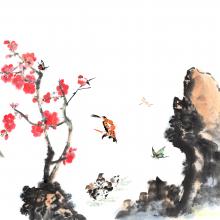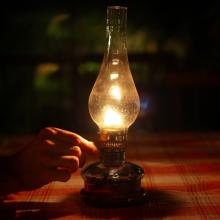new heaven
In these days barren fields will sprout trees
The deaf and blind will hear and see
The dead will raise and begin to breathe
The earth will groan in pain to see
The sons of God declare to be
His full and glorious family
The beautiful, perfect bride of Thee (Wash Me Clean, Page CXVI)
I am a city girl through and through — I’ve never lived outside of an urban context. Although my family lived in Queens (represent!), our church and community were in the dense and often treeless “ghetto” of Alphabet City, a neighborhood on the Lower East Side of Manhattan. My experiences of nature have mostly consisted of front and back yards, parks, and occasional trips to the beach or camping. And because I grew up in and spent most of my life in communities of the poor and marginalized, most of my experiences of God have centered around what Divine mercy, justice, healing, liberation, and restoration look like in the human heart.
In other words, it’s very easy for me to grasp the idea of a “New Jerusalem” or “a city whose architect and builder is God.” It’s easy for me to see the human component of God’s kingdom and what it means for people. It’s not so easy for me to imagine trees “clapping their hands” or even fully to appreciate the majesty of God’s handiwork in the stars ... because I’ve rarely seen a night sky free from light pollution. It’s not easy for me to imagine what a renewed creation would look like apart from new hearts and restored people.
“Long Time Gone” is David Crosby’s anthem of hope in jeopardy. He wrote it the night Robert F. Kennedy was assassinated.
“I believed in him because he said he wanted to make some positive changes in America, and he hadn’t been bought and sold like Johnson and Nixon – cats who made their deals years ago with the special interests in this country in order to gain power,” Crosby wrote in the liner notes of the 1991 CSN boxed set. “I thought Bobby, like his brother, was a leader who had not made those deals. I was already angry about Jack Kennedy getting killed and it boiled over into this song when they got his brother, too.”
In the ‘60s, the Kennedys represented hope for change: racial equality, economic justice, and abolishing the death penalty, for example. Five decades later, you still don’t see many long-haired politicians, but that hardly seems the matter of dire culture import that it apparently was in 1968. And now we have a black president. Still, on the whole, Crosby’s words seem prescient, rather than anachronistic.
Almost 50 years later, we’re still giving legal benefits to some couples but denying them to others, not to mention that we fill our prisons with brown-skinned people, too many women are still ashamed to report rape or domestic violence, greedy people hoard resources while others go hungry, and the president who campaigned on hope hasn’t been able to bring any real change in our unjust economy.

